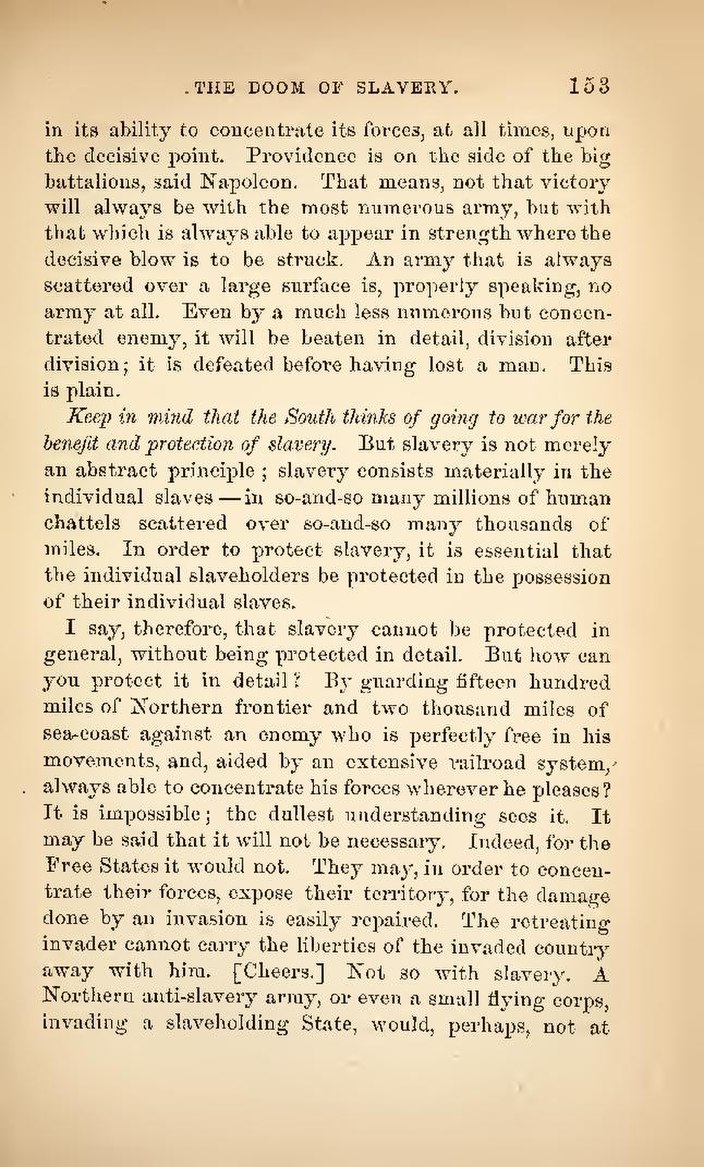in its ability to concentrate its forces, at all times, upon the decisive point. Providence is on the side of the big battalions, said Napoleon. That means, not that victory will always be with the most numerous army, but with that which is always able to appear in strength where the decisive blow is to be struck. An army that is always scattered over a large surface is, properly speaking, no army at all. Even by a much less numerous but concentrated enemy, it will be beaten in detail, division after division; it is defeated before having lost a man. This is plain.
Keep in mind that the South thinks of going to war for the benefit and protection of slavery. But slavery is not merely an abstract principle; slavery consists materially in the individual slaves—in so-and-so many millions of human chattels scattered over so-and-so many thousands of square miles. In order to protect slavery, it is essential that the individual slaveholders be protected in the possession of their individual slaves.
I say, therefore, that slavery cannot be protected in general without being protected in detail. But how can you protect it in detail? By guarding fifteen hundred miles of Northern frontier and two thousand miles of sea-coast against an enemy who is perfectly free in his movements, and, aided by an extensive railroad system, always able to concentrate his forces wherever he pleases? It is impossible; the dullest understanding sees it. It may be said that it will not be necessary. Indeed, for the Free States it would not. They may, in order to concentrate their forces, expose their territory, for the damage done by an invasion is easily repaired. The retreating invader cannot carry the liberties of the invaded country away with him. [Cheers.] Not so with slavery. A Northern anti-slavery army, or even a small flying corps, invading a slaveholding State, would, perhaps, not at
